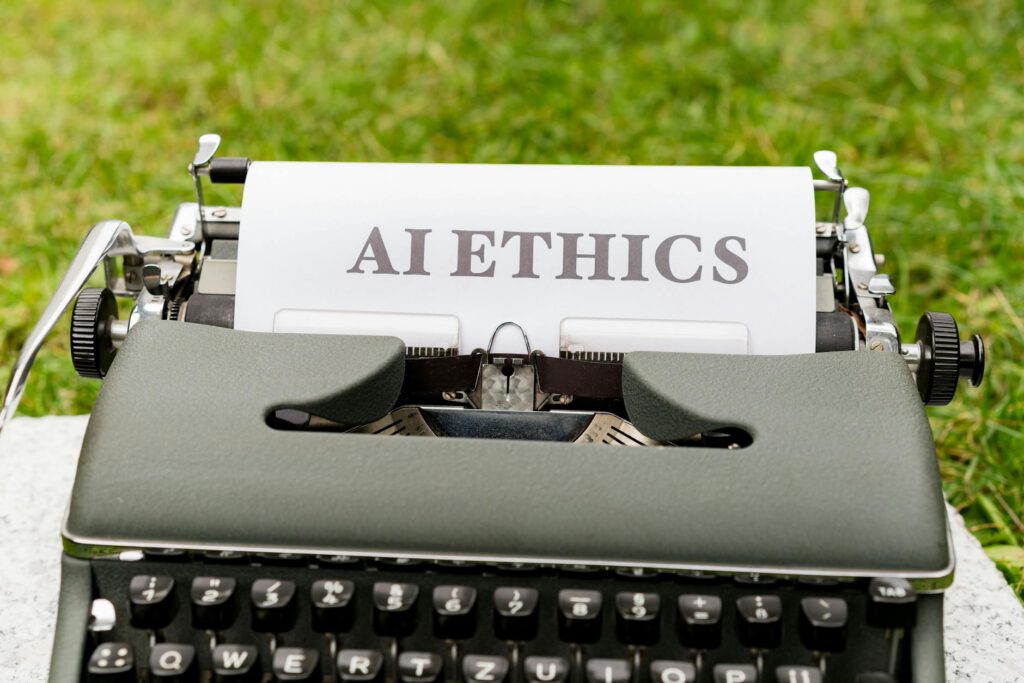Introduction
Artificial Intelligence (AI) is transforming how small businesses operate, offering tools for automation, customer insights, and efficiency. However, as AI adoption grows, so do concerns about ethics—bias, privacy, transparency, and accountability. For small businesses, ethical AI isn’t just a compliance issue; it’s a competitive advantage that builds trust with customers and employees.
This guide explores essential ethical AI practices tailored for small businesses, ensuring responsible use while maximizing benefits.
Why Ethical AI Matters for Small Businesses
AI can streamline operations, personalize marketing, and enhance decision-making. But without ethical safeguards, it risks harming your reputation, violating regulations, or alienating customers. Ethical AI ensures fairness, transparency, and accountability, aligning technology with your business values.
Small businesses, often lacking dedicated legal or AI teams, must proactively address these challenges to avoid pitfalls like biased hiring tools or invasive data practices.
Prioritize Transparency in AI Use
Customers and employees deserve to know when and how AI impacts them. Transparency builds trust and complies with regulations like the GDPR or CCPA.
Detail/Example
A small e-commerce store using AI chatbots should disclose when customers interact with bots, not humans. Similarly, an HR tool screening resumes must clarify how AI influences hiring decisions.
Actionable Steps:
– Disclose AI use in terms of service or privacy policies.
– Provide opt-out options for AI-driven interactions (e.g., chatbots).
– Explain AI decisions in simple terms (e.g., “Your loan application was reviewed by an automated system”).
Mitigate Bias in AI Systems
AI can perpetuate biases present in training data, leading to unfair outcomes in hiring, lending, or customer service.
Steps/Strategies
- Audit Training Data: Ensure datasets are diverse and representative. For example, if your AI screens job applicants, verify resumes reflect varied demographics.
- Test for Bias: Use tools like IBM’s AI Fairness 360 or Google’s What-If Tool to detect skewed outcomes.
- Human Oversight: Combine AI with human review. A recruiting tool might flag candidates, but final decisions should involve people.
Example: A bakery using AI for hiring found the tool favored applicants from certain schools. By adjusting the data and adding manual reviews, they improved fairness.
Protect User Privacy
AI often relies on personal data, making privacy a top concern. Small businesses must handle data responsibly to avoid breaches or misuse.
Steps/Strategies
- Data Minimization: Collect only what’s necessary. A fitness app doesn’t need users’ addresses to track workouts.
- Anonymize Data: Remove identifiers from datasets used for AI training.
- Secure Storage: Use encrypted platforms (e.g., AWS, Google Cloud) and comply with regulations like GDPR.
Tip: Regularly audit third-party AI tools to ensure they meet privacy standards.
Ensure Accountability
When AI makes mistakes, businesses must take responsibility. Clear accountability frameworks prevent harm and foster trust.
Steps/Strategies
- Assign Ownership: Designate a team member to oversee AI ethics, even part-time.
- Create Feedback Channels: Let users report AI issues (e.g., a contact form for biased recommendations).
- Document Processes: Maintain records of AI decisions for audits or disputes.
Example: A small bank using AI for loan approvals keeps logs to explain denials, reducing customer complaints.
Tools/Tips/Resources
Tools
- Bias Detection: IBM AI Fairness 360, Google’s What-If Tool
- Privacy Compliance: OneTrust, Termly.io
- Transparency: Loom (for recording AI decision processes)
Tips
- Start small: Focus on one AI application (e.g., chatbots) before scaling.
- Educate staff: Train teams on ethical AI basics.
- Stay updated: Follow organizations like Partnership on AI for guidelines.
Resources
FAQs
Q: Can small businesses afford ethical AI practices?
A: Yes! Many tools are free or low-cost (e.g., Google’s bias-checking tools). Prioritizing ethics reduces long-term risks like fines or reputational damage.
Q: How do I know if my AI is biased?
A: Audit outcomes for disparities (e.g., approval rates by demographic). Use open-source tools to analyze data.
Q: Is ethical AI legally required?
A: In many regions, yes. GDPR (EU) and CCPA (California) mandate transparency and fairness in automated decisions.
Conclusion
Ethical AI isn’t just for tech giants—small businesses must adopt these practices to build trust, comply with laws, and avoid costly missteps. By prioritizing transparency, fairness, privacy, and accountability, you harness AI’s power responsibly. Start small, leverage available tools, and continuously refine your approach. Ethical AI isn’t a constraint; it’s a foundation for sustainable growth.
By integrating these practices, your business can thrive in the AI era while maintaining the trust of customers and stakeholders. For more insights on leveraging AI ethically, explore DigitalBoostHQ’s blog.

